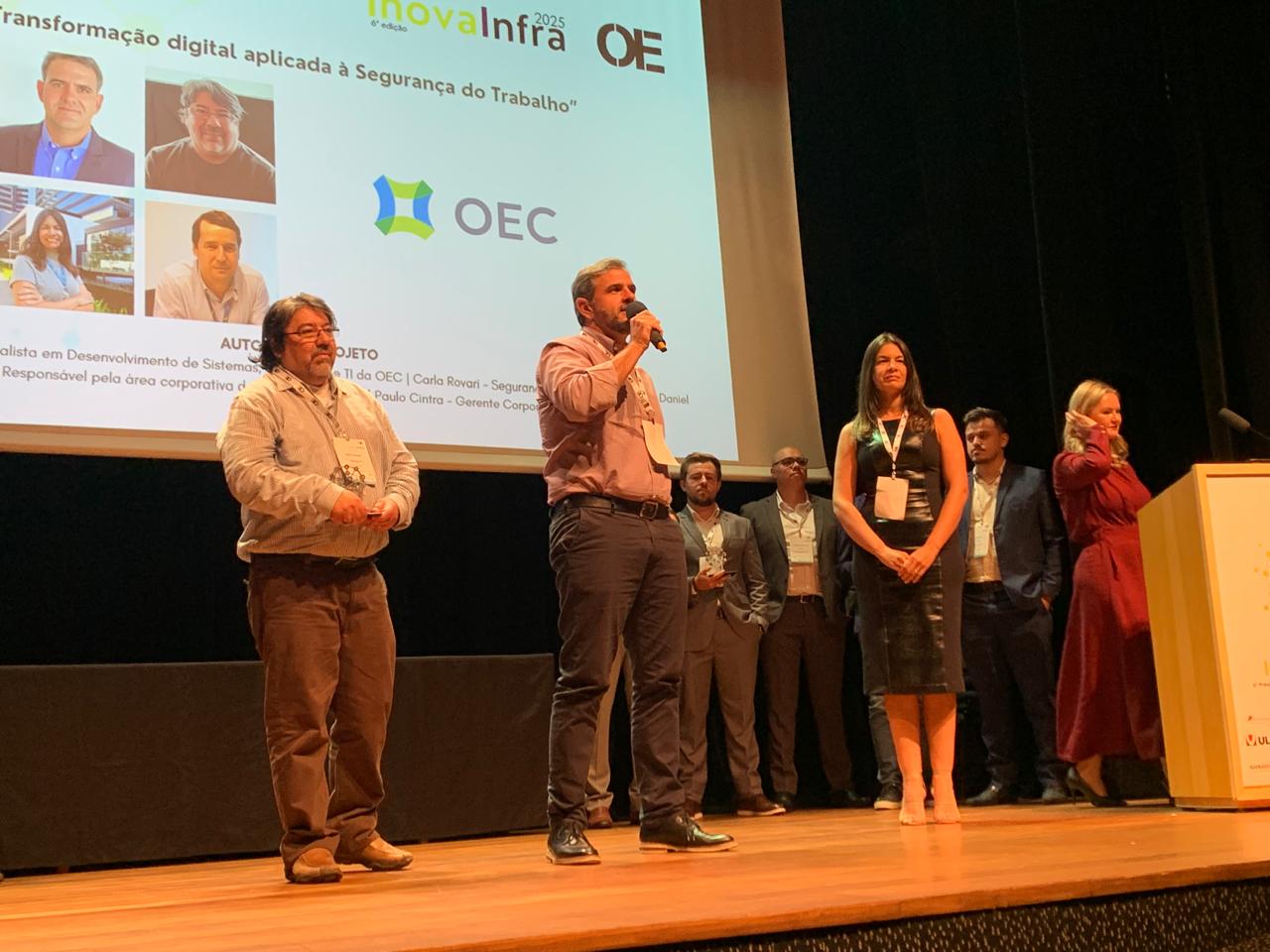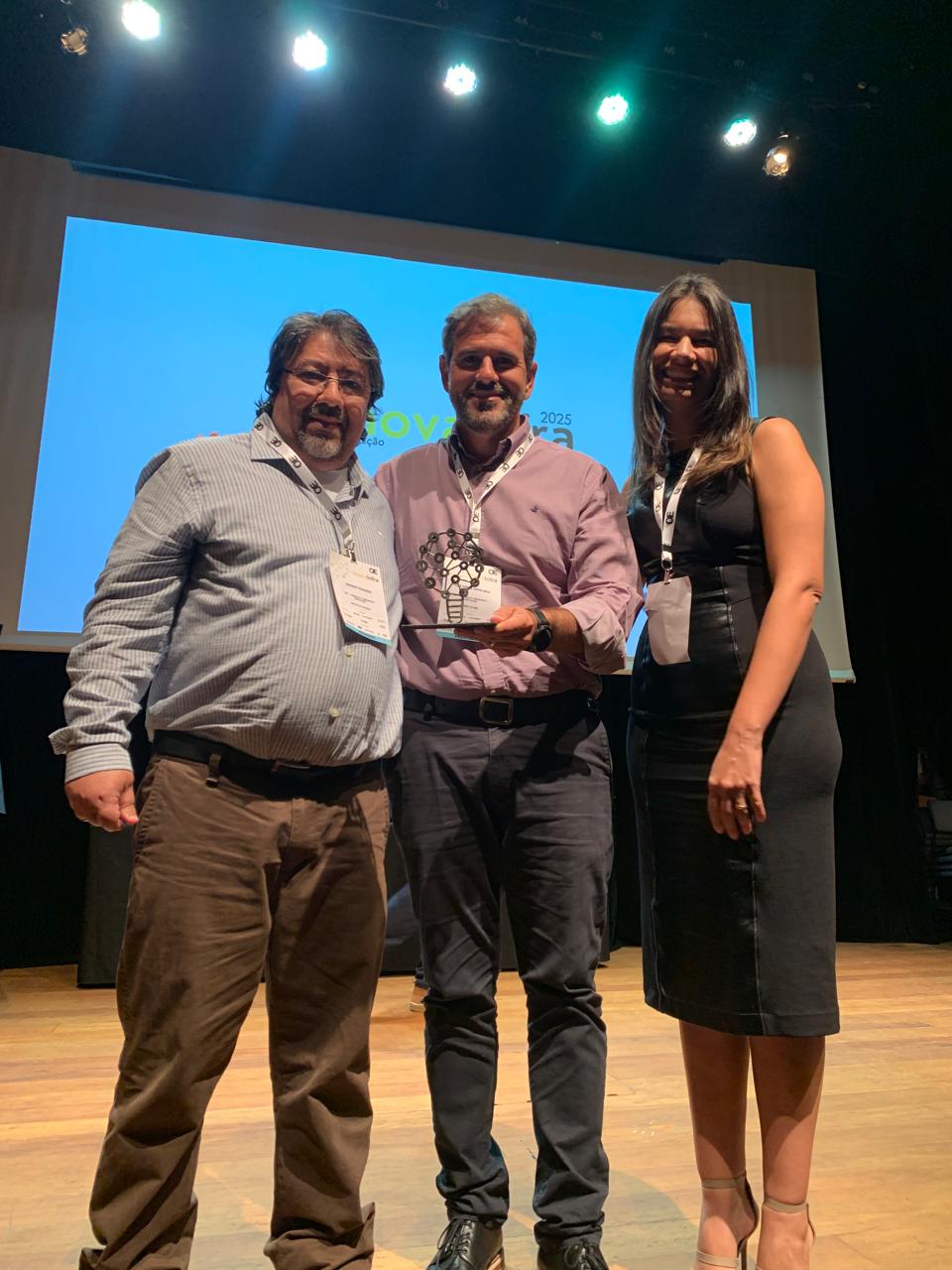The Cantareira Consortium, serving the concessionaire Via SP Serra, completed last Friday (February 6) the opening of the outer...
Digitization of safety advances in heavy construction – and OEC’s case illustrates this turning point
DATE: 04/16/2025
With a presence on major construction sites in Brazil and abroad, the company has adopted a digital system that combines automation, real-time data and a culture of prevention

A sector historically marked by manual processes and low technology adoption, engineering and heavy construction have accelerated the digitization of their operations, especially in areas linked to people management and occupational safety. The movement is a response to a structural challenge: large-scale construction projects involve thousands of workers, operations spread across different regions and increasingly stringent regulatory requirements.
A recent example of this transformation is the project developed by Odebrecht Engineering e Construção, winner of the 6th edition of Inovainfra 2025 – an award promoted by “O Empreiteiro” magazine to highlight innovations in engineering and infrastructure.
The company created a digital platform for managing Occupational Health and Safety , replacing the old paper records with an integrated data control and analysis system. The OEC Sustainability Suite, as the tool was named, allows everything from electronic training records to monitoring safety deviations and checking equipment using QR Codes.
The impact of digitalization can be seen in the figures: more than 980,000 workers have been trained electronically, 3,500 risk situations have been reported and monitored via the system, and around 26,000 employee training courses have been registered on the platform. The solution has been implemented in all the company’s contracts, in Brazil and abroad.
As well as reducing operational costs – such as the physical storage of documents for decades – the platform allows managers to monitor safety indicators for ongoing construction work in real time.
“The digitization of Occupational Health and Safety processes is no longer just a one-off initiative and is now part of the strategic agenda of large construction companies, in line with the advance of technology in traditionally less automated sectors. For us, it’s an important milestone in the company’s digital transformation strategy,” says Daniel Lepikson, head of OEC’s Innovation area.
According to Lepikson, the Inovainfra 2025 recognition reinforces the company’s commitment to using applied technology to solve historic engineering challenges. “Winning an award for a project of this nature shows us that we are on the right track by putting people’s safety and integrity as priorities, integrated with smarter and more connected processes,” he says.
Paulo Cintra, who is responsible for Occupational Health and Safety at Odebrecht, comments that the tool, through the DDS-e and Deviations modules, has a very high added value to the production process, whether through cost reduction or a significant improvement in the digitization and traceability of information. “Today we can say that on our construction sites we have a reliable record of information and, above all, the certainty that the digital transformation process is strongly contributing to greater awareness among workers,” he says.
About OEC
With 80 years of history, OEC is the largest infrastructure construction company in the country, according to the most recent Ranking of Brazilian Engineering, published by O Empreiteiro magazine. It is responsible for more than 3,000 projects in 38 countries around the world, such as power stations, subways, railroads, bridges, airports and refineries. On 22 occasions it has been recognized by the Global Best Projects award organized by the US magazine ENR – Engineering News-Record, which is considered the most important distinction in world engineering. In the last five years, the company has won more than R$20 billion in new contracts. Since 2021, it has been ISO 37001 certified, which attests to anti-bribery and integrity practices at an international level. In 2022, it received the Infra+ Integrity seal, offered by the Ministry of Infrastructure, and, in 2023, it obtained the Pro-Ethics Seal, an initiative of the Comptroller General of the Union (CGU) and the Ethos Institute aimed at promoting a more ethical, honest and transparent corporate environment. It currently employs around 18,000 people of different nationalities at more than 30 construction sites throughout the Americas and Africa.




No comments